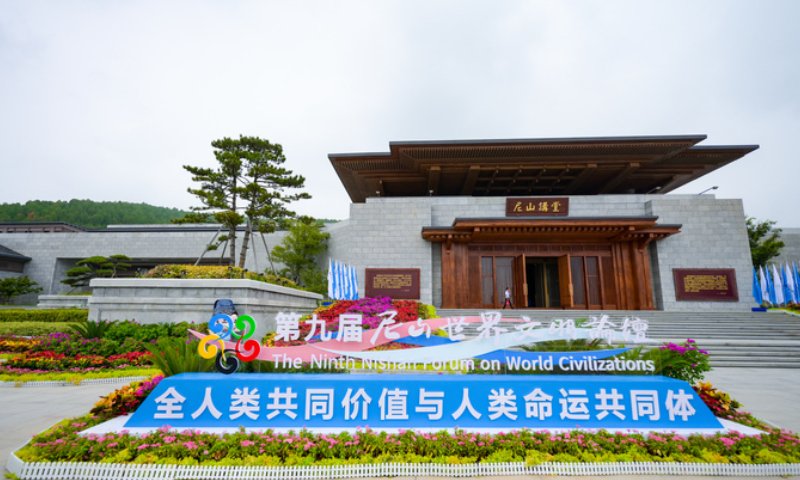Qufu, the birthplace of China’s legendary sage Confucius in East China’s Shandong Province, witnessed a gathering of some of the brightest minds from around the world this Wednesday. The Ninth Nishan Forum on World Civilizations commenced, highlighting its commitment to fostering dialogue on the shared values that thread through the tapestry of global civilizations.
With a rich participation of over 1,600 scholars from various corners of the world, the forum stands as a testament to the universality of certain human values that traverse cultural, geographical, and historical boundaries. Bearing the theme “Common values of all humanity and a global community of shared future: Strengthening cultural exchange and mutual learning to jointly address global challenges,” the event facilitates profound discussions on myriad subjects. One such captivating topic is the relevance of Confucian wisdom in navigating the multifaceted challenges that our global society confronts today.
Shohrat Zakir, the vice chairman of the Standing Committee of the 14th National People’s Congress (NPC), graced the occasion, emphasizing the essence of respecting the “diversity of human civilization.” This message resounds with the overarching ethos of the Nishan Forum, advocating a celebration of the multifariousness of global cultures while acknowledging the shared core of human values.
Beyond the primary discussions, this year’s Nishan Forum also branches out into 13 insightful sub-forums. A notable inclusion is the “Nishan World Forum of Confucianism.” Here, academic luminaries from countries as diverse as the US and South Korea converge to explore topics that underscore the significant influence of Confucian culture on the modernization trajectory of East Asia.
A standout perspective comes from Roger T. Ames, a distinguished Confucian scholar from the United States. He touched upon the Confucian doctrine of “harmony but not uniformity,” highlighting its enduring relevance. In an age where diversity is often a flashpoint for tension, this ancient principle beckons modern societies to embrace and respect the myriad differences that characterize the human experience.
The roots of the Nishan Forum on World Civilizations trace back to 2010. Over its eight previous iterations, it has steadily gained acclaim as a beacon for cultural interchange. With its mission of facilitating dialogue and understanding among civilizations, the forum has been instrumental in bringing to the fore ideas that resonate with people across continents.
This year’s conclave promises to be as enlightening as its predecessors and will span discussions until Thursday. As it unfolds in the serene environs of Confucius’ hometown, the Ninth Nishan Forum symbolizes a bridge that connects ancient wisdom with contemporary challenges, illuminating paths of understanding and collaboration for a global community.
READ MORE:
